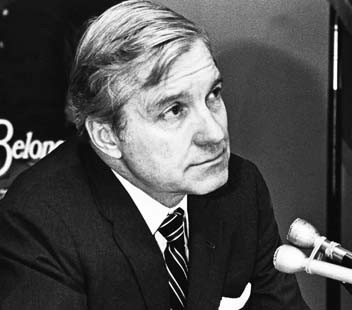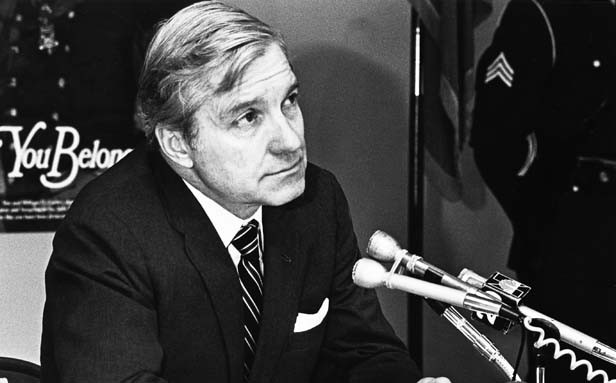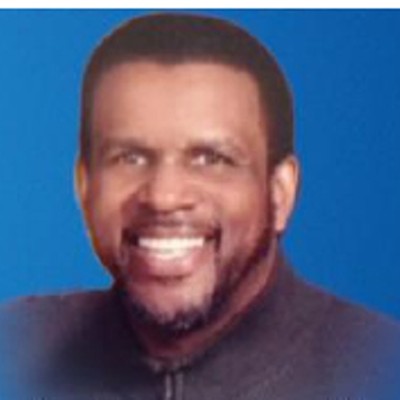For followers of contemporary Illinois politics, the name Charles Percy needs some refreshing. In an earlier day he served as a Republican for three terms in the U. S. Senate (1967-1985) and established a record for independence that today would be admired – or feared. He died Sept. 17 in Washington at the age of 91.
As with most past or former elected officials, the pitched political battles of those service years provide a lasting picture of the issues and personalities that framed his time in office. Here are a few of Percy’s public moments, some of which have applications today:
–Failure to work out a positive relationship with an aging and infirm Sen. Everett Dirksen, Illinois political potentate, when they became Senate colleagues in 1967. Dirksen was partly to blame for their clashes. Percy respected Dirksen, but had a mind of his own.
–Quarrels public and private with Richard Nixon and the president’s men over votes against two nominees for the Supreme Court and an anti-ballistic missile system (ABM), plus votes against Nixon appointees of lesser stature. After Nixon fired his aides in 1973, Percy called for an independent Watergate prosecutor. Nixon put Percy on his “enemies list.” While Percy turned the other cheek, he did not back away.
–Long-lasting uneasiness between Percy and downstate Illinois’ hardcore, rock-ribbed conservative Republican officials. They put him down as a snob and elitist. He had his moments, but did not change.
–The furor when Percy called on Israel to meet with Palestinians and to offer a pullback to its pre-June 1967 borders. A famous comment, made several times by Percy, describing Yasser Arafat as “relatively speaking, a moderate,” brought about a hardness of feelings between the senator and American Jews. Jewish money and votes helped defeat him in 1984, but Percy made no excuses.
–Trouble between President Ronald Reagan and Percy. The senator, who served as chairman of the Senate Foreign Relations Committee, pursued his own agenda with Russia and the Mideast that was not submissive to Reagan. It didn’t help that Percy supported Gerald Ford, instead of Reagan, for the presidential nomination in 1976.
Those independent, and stubborn, moments made political life difficult for Percy. He had trouble drawing colleagues to his point of view and building legislative coalitions in the Senate. Part of his behavior reflected an “executive” personality honed as the young, dynamic CEO of consumer electronics firm Bell & Howell in the years before he turned to politics. He also played poorly as an insider.
In order to achieve a moderate position in a partisan intra-party environment, Percy generally avoided the extremes and chose support of Republicans who worked the middle ground. He eschewed Nixon, Barry Goldwater and Reagan, choosing instead the models of Dwight Eisenhower, Nelson Rockefeller and Ford.
Percy’s political agony resulted largely from a determination to speak and to vote his mind, without much regard for the consequences. Critics in Illinois and in the Senate wanted people to believe that Percy was just plain uninformed and inexperienced in public affairs – a sort of political simpleton, not to be taken seriously. Although he occasionally failed to make his point well, and stumbled politically when it wasn’t necessary (such as turning down an assignment to the Appropriations Committee), from today’s perspective he appears refreshingly informed and candid, both in his time and when compared to today’s government leaders. His statements designed to bring the parties together in the Mideast might have been chosen with more care, but his intentions were honorable and many others, including contemporary presidents, have tried for accord and failed.
Like many senators before and after, Percy wanted to be loved, respected, admired and re-elected. His enemies and critics denied him many of the accolades he sought, but he succeeded in the elections of 1966, 1972 and 1978 before the cumulative record of those years resulted in his defeat by Paul Simon in 1984. His early popularity at the polls inspired him to consider running for president in 1976, but the Nixon resignation and Ford’s appointment as president stopped Percy before he started.
In reflection on the political careers of Percy and Simon, the two opponents displayed intriguing similarities in behavior when it came to not bowing to the insider game and standing firm on unpopular positions. Admirably, they took their devotion to religious beliefs seriously without parading them publicly. (Simon was a Lutheran, Percy a Christian Scientist.) Despite their differences on public policies, both were committed to high ethical standards and personal decency. After Simon’s victory, the two developed a civil relationship, which reflected well on both.
One of Percy’s loyal staff members caught the essence of his boss with these words: “He has the decent and the essential instincts, and when he’s committed to something he’ll say, ‘Hey, wait a minute.’ He’ll go along but only up to a point, and then he’ll drive the administration crazy, he’ll drive his colleagues crazy, but he’ll be a lot more fun that way than when he’s the team player.”
Charles H. Percy was faithful to his beliefs and committed to public service, which is a fitting epitaph for any U. S. senator.
–Robert E. Hartley
Robert E. Hartley is the author of Charles H. Percy: A Political Perspective. He is co-author of a book titled The Heroic and the Notorious: U. S. Senators from Illinois that will be published in 2012.




















